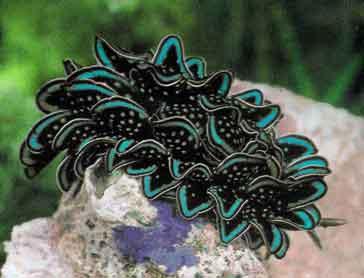I hadn't read The Rainbow since I fell in love with Ursula Brangwen while I was studying the book at university. Or rather, since I recognised echoes of myself in Ursula Brangwen while I lived through her university studies in the book. (That is the test of a good book: if you can recognise yourself in the protagonist. And I believe DH Lawrence is one of the few male novelists who can do a really good female protagonist.)
Having been recently involved (see this blog entry) in a discussion of whether there is a separate "spiritual" existence above and beyond humanness, or whether the feelings of "goodness" and "transcendence" are explainable by purely physical phenomena, I read this section in the penultimate chapter of The Rainbow with some delight:
...she was fretting over a conversation she had had a few days ago with Dr. Frankstone, who was a woman doctor of physics in the college.
“No, really,” Dr. Frankstone had said, “I don’t see why we should attribute some special mystery to life—do you? We don’t understand it as we understand electricity, even, but that doesn’t warrant our saying it is something special, something different in kind and distinct from everything else in the universe—do you think it does? May it not be that life consists in a complexity of physical and chemical activities, of the same order as the activities we already know in science? I don’t see, really, why we should imagine there is a special order of life, and life alone——”
The conversation had ended on a note of uncertainty, indefinite, wistful. But the purpose, what was the purpose? Electricity had no soul, light and heat had no soul. Was she herself an impersonal force, or conjunction of forces, like one of these? She looked still at the unicellular shadow that lay within the field of light, under her microscope. It was alive. She saw it move—she saw the bright mist of its ciliary activity, she saw the gleam of its nucleus, as it slid across the plane of light. What then was its will? If it was a conjunction of forces, physical and chemical, what held these forces unified, and for what purpose were they unified?
For what purpose were the incalculable physical and chemical activities nodalised in this shadowy, moving speck under her microscope? What was the will which nodalised them and created the one thing she saw? What was its intention? To be itself? Was its purpose just mechanical and limited to itself?
It intended to be itself. But what self? Suddenly in her mind the world gleamed strangely, with an intense light, like the nucleus of the creature under the microscope. Suddenly she had passed away into an intensely-gleaming light of knowledge. She could not understand what it all was. She only knew that it was not limited mechanical energy, nor mere purpose of self-preservation and self-assertion. It was a consummation, a being infinite. Self was a oneness with the infinite. To be oneself was a supreme, gleaming triumph of infinity.
Here Lawrence has captured the transcendental experience of human thought and feelings, without turning it into an external deity. For the algae on the microscope slide, existence is a Platonic "thing-in-itself" and Ursula finds in that a consummation between the physical world and the infinite.
I have never felt consummated by an algae (although I remember being mesmerised by the light from my little microscope shining through the rainbow colours of skin cells on a slide I had made when I was 10 years old), but that is the kind of transcendent human experience I feel when I listen to music, or read poetry. It's the kind of experience that turns people to seek God as an explanation for their thoughts and feelings and, according to Lawrence, it doesn't really matter whether or not they find a religion that satisfies them, or some more pure unification with the gleaming triumph of infinity.
As someone said during last week's discussion (in an email), "the whole is greater than the sum of the parts". The meaning of this quotation, however, depends on the definition of greater: the whole of human consciousness may be "greater" -- beautiful, transcendent, infinite -- but yet not "more than" -- that is, it may still ultimately be explained by a combination of finite chemical reactions without needing recourse to a deity to fill in the gaps of understanding.
To be myself is a supreme, gleaming triumph of infinity. Thrilling!

No comments:
Post a Comment